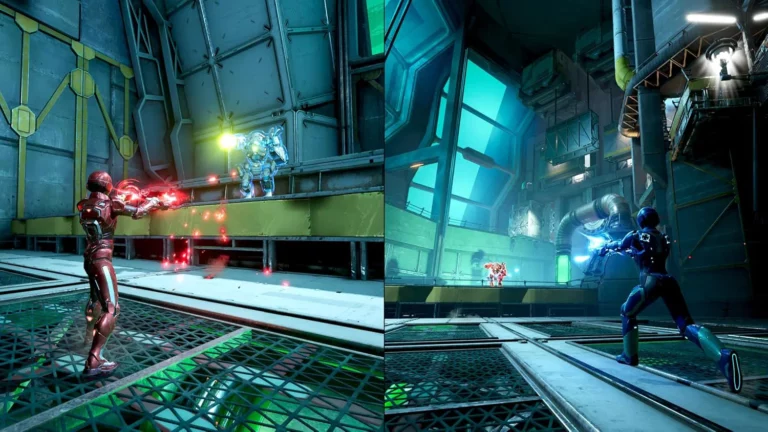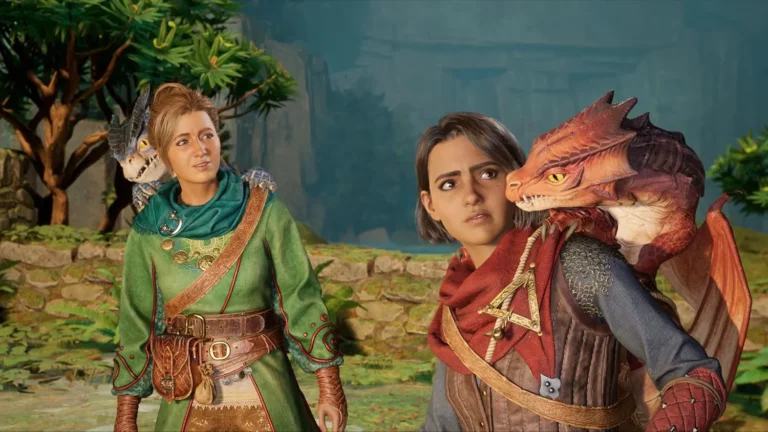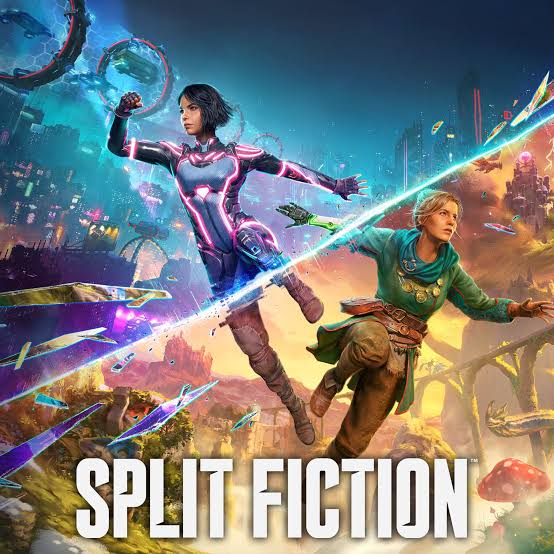- Home
- Split Fiction
Review of Split Fiction
Split Fiction: A Deep Dive into Parallel Realities and Existential Storytelling
Split Fiction is a masterclass in blending innovative gameplay with profound narrative depth. Developed by an ambitious indie studio, this puzzle-adventure game takes players on a journey through parallel dimensions, exploring themes of identity, choice, and the fragile nature of reality. With its unique mechanics, emotional storytelling, and atmospheric design, Split Fiction is a standout title that lingers in your mind long after the credits roll.
Story: A Tale of Two Realities
The narrative of Split Fiction is its beating heart. You step into the shoes of Alex, an ordinary individual who stumbles upon the ability to “split” between two parallel dimensions. These worlds are eerily similar yet fundamentally different, each reflecting the outcomes of pivotal decisions made in the past. As Alex, you uncover the truth behind the “Fracture Event,” a cataclysmic occurrence that caused the dimensions to diverge.
The story is deeply personal and philosophical, delving into themes like regret, the weight of choices, and the search for identity. The writing is sharp and introspective, with well-developed characters and dialogue that feels authentic. The game doesn’t shy away from moral ambiguity, presenting players with tough decisions that ripple across both realities. These choices aren’t just black and white—they’re layered, forcing you to weigh the consequences for both Alex and the people around them.
What makes the narrative truly compelling is its emotional resonance. Alex’s internal monologues and interactions with other characters reveal a vulnerability that makes them relatable. The game’s exploration of parallel worlds serves as a metaphor for the paths we take in life, asking players to reflect on their own choices and what-ifs.
Gameplay: Duality as a Core Mechanic
The gameplay in Split Fiction is where its brilliance truly shines. The ability to switch between two parallel dimensions isn’t just a gimmick—it’s the foundation of every puzzle, exploration sequence, and story beat. Each dimension has its own unique environment, challenges, and narrative threads, and the interplay between them is seamless and intuitive.
Puzzle-Solving: The puzzles are ingeniously designed, often requiring you to manipulate objects or solve problems in one dimension to affect the other. For example, a locked door in one world might be wide open in the other, but accessing it could require creative thinking and careful planning. The puzzles escalate in complexity as the game progresses, introducing new mechanics like time-based challenges and environmental interactions.
Exploration: Both dimensions are richly detailed, encouraging thorough exploration. You’ll uncover hidden lore, collectibles, and environmental storytelling that adds depth to the narrative. The art direction is stunning, with one world bathed in warm, vibrant colors and the other shrouded in cold, desolate tones. The contrast between the two is visually striking and reinforces the game’s themes.
Combat and Stealth: While Split Fiction isn’t a combat-heavy game, it introduces tense moments where you must evade or confront enemies. The dual-world mechanic adds a layer of strategy here, as you can use one dimension to escape danger in the other. These sequences are well-paced and add variety to the gameplay without overshadowing the core experience.
The controls are smooth and responsive, and the game does an excellent job of gradually introducing new mechanics without overwhelming the player. However, some puzzles can feel repetitive or overly convoluted, and the lack of a fast-travel system can lead to tedious backtracking.
Visuals and Sound: A Feast for the Senses
Split Fiction is a visual and auditory masterpiece. The art direction is breathtaking, with each dimension offering a distinct aesthetic. One world is lush and vibrant, filled with life and color, while the other is dark, decaying, and hauntingly beautiful. The attention to detail is remarkable, from the way light filters through broken windows to the subtle differences in architecture between the two realities.
The sound design is equally impressive. The ambient soundtrack shifts seamlessly to match the tone of each dimension, creating an immersive experience. The music is haunting and atmospheric, perfectly complementing the game’s emotional weight. Voice acting is top-notch, with Alex’s internal monologues adding depth and vulnerability to the character.
Replayability: Choices That Shape the Journey
One of Split Fiction’s strongest features is its replayability. The game features multiple endings, each influenced by the choices you make throughout the story. The branching narrative ensures that no two playthroughs are exactly the same, and the dual-world mechanic adds an extra layer of complexity to decision-making.
Additionally, the game encourages exploration and experimentation. There are countless hidden secrets and alternate paths to discover, making it a rewarding experience for completionists. The ability to revisit key moments and make different choices adds depth and longevity to the experience.
Critiques: A Few Imperfections
While Split Fiction is a remarkable game, it’s not without its flaws. Some players might find the pacing uneven, particularly in the middle section where the story slows down to focus on character development. The puzzles, while generally well-designed, can occasionally feel repetitive or overly convoluted.
Another minor gripe is the lack of a fast-travel system. Given the size of the game world and the need to frequently switch between dimensions, this omission can lead to some tedious backtracking.
Conclusion: A Thought-Provoking Masterpiece
Split Fiction is a bold and ambitious game that delivers on its promise of a mind-bending, emotionally resonant experience. Its innovative dual-world mechanic, compelling narrative, and stunning visuals make it a standout title in the puzzle-adventure genre. While it has a few rough edges, the overall experience is unforgettable.
If you’re looking for a game that challenges your mind and tugs at your heartstrings, Split Fiction is well worth your time. It’s a testament to the power of indie gaming, proving that even in a crowded industry, there’s still room for fresh, innovative ideas.
Final Score: 9/10
Split Fiction is a triumph of creativity and storytelling, offering a deeply immersive experience that will leave you questioning your own reality.



